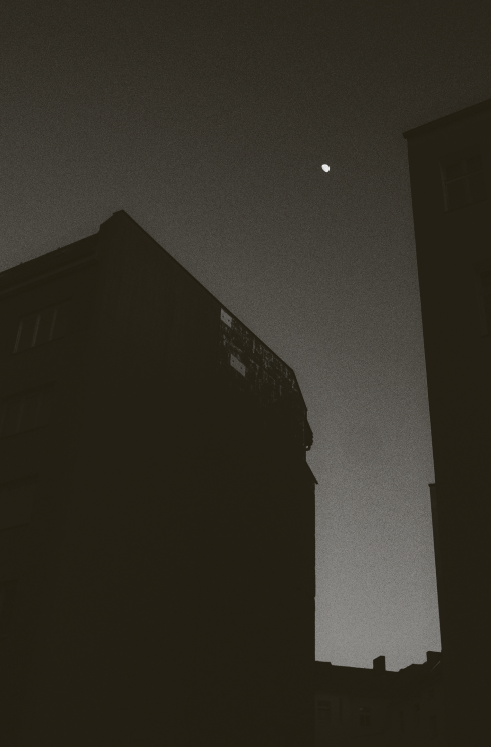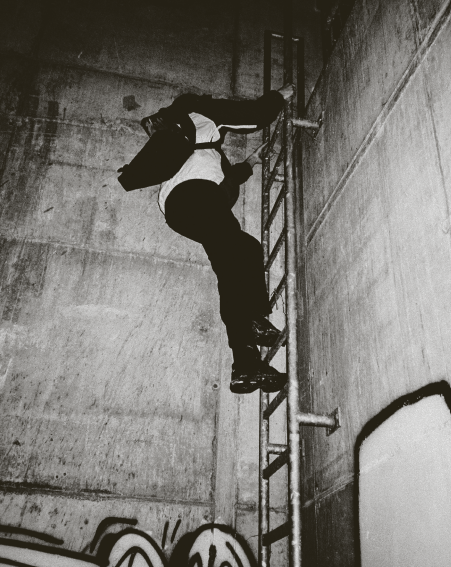➞ German version | Text v češtině
Of overcrowded boats and empty plates
They enter the country in search of a better life. They don’t bother to learn the language, prefer to stay amongst each other, and live in parallel societies with their own clubs and associations. They don’t want to work and yet feel like they deserve anything they wish for. And they keep increasing in numbers, with no end in sight. Of course we’re talking about German retirees in Spain and Turkey. A lot of people will criticize this behavior, arguing that “other cultures” have to be respected, and that it’s common sense not to abuse the right to hospitality.
This example already highlights a lot of things that go wrong within the debate about “foreigners” and “natives”. I don’t want to respect“cultures” or some “right to hospitality” – I want to respect human beings and their needs, which makes it necessary to overcome categories like “us” and “the others” altogether. Of course, self-important German tourists are annoying – but not because of their ignorance towards a certain culture or country, but because they show dismissive or even racist attitudes towards other human beings. That is why if the next time a debate about refugees once again ends with the statement “we simply can’t admit all of them”, I will insist, “who is this ‘we’?!? Why should people who coincidentally own a different passport be any less entitled to live in a given country?” In general, I won’t let anyone tell me that human beings could be “unnecessary” or “illegal”. Usually, the next argument is: “we” are not the “social welfare office of the entire planet”; which is why we must also talk about the reasons for migration.
Every refugee is a political refugee
There is common agreement in debates about refugee policy that people who flee for political reasons should be granted admission, but that economic reasons do not count. Even ignoring the fact that political refugees are never simply greeted with open arms, this distinction is utter nonsense. Refugee activists have long argued that every reason for fleeing one’s home country is political. If people flee because they no longer have any opportunities, since the competition of a global market has devastated their region, then that is also a political issue. Moreover, this is in fact a direct connection to the actions of industrialized countries; refugee activists point to that connection by declaring “we are here because you destroy our countries!”
Consequently, the idea that “we” are “the social welfare office of the planet” doesn’t have a grain of truth. The need to flee is caused by the relentless competition of states amongst themselves: rich states can only be winners in global competition because there are also losers. People flee for many reasons. But the success of businesses located within a rich state is won at the expense of people in other countries that cannot be world champion in exports, since eventually someone has to buy all the garbage produced. For example, the so-called „Hartz IV“ legislation introduced in Germany in 2003 has systematically increased poverty and lowered wages. This has led to a relative increase in the price of goods produced in countries that did not make equally extreme cuts. This reduction in competition pressed southern European countries into economic crisis, because their products were no longer purchased. When their inhabitants then look for possibilities in Germany, they are left without any social benefits despite their EU-passport. To put it bluntly, to make a place economically “competitive” means people will have to flee to somewhere else.
Some are more equal?
There are laws and postcolonial regulations which give reasons for the rejection of refugees entering another country. As cruel as it is, the EU and the European Border Guard Frontex are mostly murdering in silence: 18.673 people, whose names are unknown, died at borders between 1988 and 2012. The real number is likely to be even higher. For orientation, here are the numbers of another death strip: 136 to 245 dead were to be mourned at the Berlin Wall between the GDR and FRG within 28 years. Every border victim is one too many, but unfortunately only a few people see it like that. Wreath-laying ceremonies for victims of the Berlin Wall in the morning and ordering deportations in the afternoon is not a conscious hypocrisy but testifies racist thinking. There, the victims are not equal, as some of them belong to the German “we” and border murderers are always the others.
It just doesn’t help to say that we will erase in our minds the categories of “we” and “the others”, the conception of “illegal” humans and burn all the passports and visas. Although this would at least improve things a little, the categories are still reality, seem to be natural to many people, and above all they are enforced violently by institutions.
Here is an example of how boundaries were defined: centuries ago a ruler lost a war against another ruler and therefore a river is not only a place for swimming but marks the border to the “other” country. Pretty mad. It becomes even more insane when the people on different sides of the river develop a deep feeling for “their country”, and keep their fingers crossed for its success in direct competition with the country on the other side.
“No way to delay / That trouble comin’ every day”
But why is it that not everybody is allowed to use the bridge over the river? A quite important reason for rejecting refugees entering another country is that humans in this society are not just Jack and Jill or Siegfried and Roy. In the market economy humans are so-called human capital. This means that there is firstly an interest to use their labour power and secondly to monitor them. But there are still other distinctions – people with the “wrong skin colour” or the “wrong passport” are “too much”. But initially, a step backward: What does “too much” exactly mean? The labour power that is not applicable is first of all unprofitable. Now, no one can exactly say when the time came that there are too many people which are not needed. This “too many” has been fiercely fought over and nonetheless exists as a strict magnitude. A bit “too many” is still useful for the regime of exploitation as then each person that wants higher wages or imagines something different for her/his life, can be blackmailed as there will be always someone else who is waiting for their job position instead.
But too many should not live on social security benefits. And when somebody is being excluded from social security, she/ he must somehow also find something to live on. And police and prisons for those who are brought into crime cost lots of money. And then, they even could come to the conclusion that life could be more than grind and poverty…This, what is called “public order”, and can be translated as monitoring, intimidation and diminishing, is expensive. All are wrong costs, which hit back in the competition among different states. This is why nations attempt to head off as many people as possible at the borders and to obligate the country of provenance to the brutal rejection of refugees.
For a while, the boycotted dictator Gaddafi had been the best friend of the West because he stopped African refugees in Libya by all available means, with the help of EU-money.
For the most part, several agreements determine which people are allowed to enter Europe as a humanitarian act.
This “only you can enter” is just another version of “you stay out”. Those who are demanding Green or Blue cards or not criticizing the aspect or profitable and unprofitable persons in the acceptance of academic degrees are rarely better than those who claim that the boat is full. Not that regulations about “qualified migration” could not improve the life of an individual, but they would only be implemented if it is economically beneficial for the national location. That is a green-social democratic version of deportation and European Border Guard Frontex, just with solar boats and lead-free munitions but killing in almost the same manner.
So everything is the same, even the answer: Revolution? Not exactly. Okay, mostly refugee politics react to new conditions: Like with the end of the German socialist state (GDR) it was no longer necessary to perform ‘humanely’ in response to the conditions of the “other Germany”, and therefore accept every refugee from there. Instead of fighting the racist mob, its demands were fulfilled and the whole asylum right abolished. Still these questions remain open: When is it recognized that there are too many unprofitable people? Why just people from other countries are always “too much”. Hopefully these struggles lead to a point where a society, which sees people as superfluous, is abolished. Certainly, here and now, these struggles can improve the life of illegalized people. Even recent refugee protests have achieved a lot. It is a start to support structures of “illegal” people and counteract racist thinking. It is the beginning of a time when humans are not illegal and not seen as a box of labour power anymore. And all people could move, wherever they want to go.
For further reading
Shift Magazine #10: Immigration Rights and No Border Struggles in Europe


